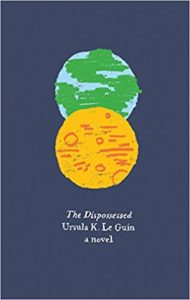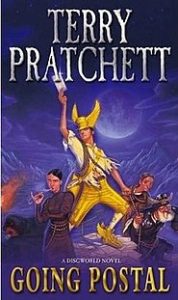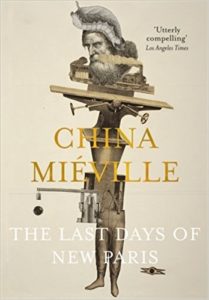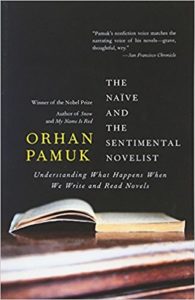My first thought on finishing this book is “That was stupid.” And maybe in the late 1980s when this was written, the concepts invoked might have been considered new and interesting enough to paper over the book’s many other faults. In 2018, however, reading Consider Phlebas was a hard, unrewarding slog.
First and foremost, this book is really badly written. I am aghast that anyone could think otherwise. Iain M Banks loves to describe and describe and describe in mind-numbing detail the least interesting parts of the scenery. He spends pages describing the appearances of the crew of the CAT for no discernible reason other than to say “hey, these aren’t the standard humans you’re familiar with!” Which is also? A wildly unnecessary task. If their non-standard bodily characteristics had had any bearing on the narrative then great, but spoiler: they don’t! And every scene on the trains in the end was incredibly dull by virtue of being hopelessly overwritten. There is suspense and there is sheer tedium, and I was bored as hell by all the myriad descriptions of ruined metal. It was a total trainwreck of over-writing.
There were a lot of interesting set pieces that were just overworked by Mr Banks and then further made irrelevant by not having consequences beyond said set piece (tho I did enjoy the callback to the Damage game at the end.) I think a large part of the problem with Consider Phlebas is that it reads as if Mr Banks was trying to “redeem” the space opera genre. That kind of authorial condescension never bodes well for the reading public. It’s one thing to write for yourself, or for love of a genre (one excellent recent example being S. A. Chakraborty’s City Of Brass, which was originally Islamic history/fantasy fan fiction) but to go into writing, particularly into writing genre fiction, without the primary purpose of entertaining your readers, pretty much dooms your book to being a dull, moralizing exercise devoid of genre’s enlivening spirit.
I also wasn’t the hugest fan of the politics of this book. The Culture is a socialist techno-utopia that starts a war against the religious militants of the Idiran because the latter are a provocation to the former’s way of life? Which somehow justifies the billions of lives lost? The fuckery is this? That reasoning is sheer propaganda, the kind of excuse bandied about by greedy politicians and generals intending to exploit an area’s resources, to their gullible/sheltered constituents back home in order to pacify complaints about cost a/o morality. No one actually goes to war for that reason, it makes zero sense. Even the Christian crusades had the dubious goal of retaking the holy land, not just a “Muslims are a provocation” nonsense. Had the Idirans attacked first, this would have made a ton more sense, but Mr Banks was busily pushing a weird Noble Savage narrative that I found incredibly irritating, especially since they were clearly a stand-in for Islamic civilization. It was like he was trying to invert conventional Western expectations, which I’m all for, but did it in a way that ignored basic concepts of logic and self-preservation inherent to most sentient beings (not that I know any beyond human beings, but is a reasonable extrapolation given that we’re talking about a book written by a human person for a human audience.)
Anyway, this book was dumb, and I’m sorry I suggested it to Ingress book club. Book clubbers, if you’re reading this, I’m so sorry. I hope the TV version that started our conversation is way better.




